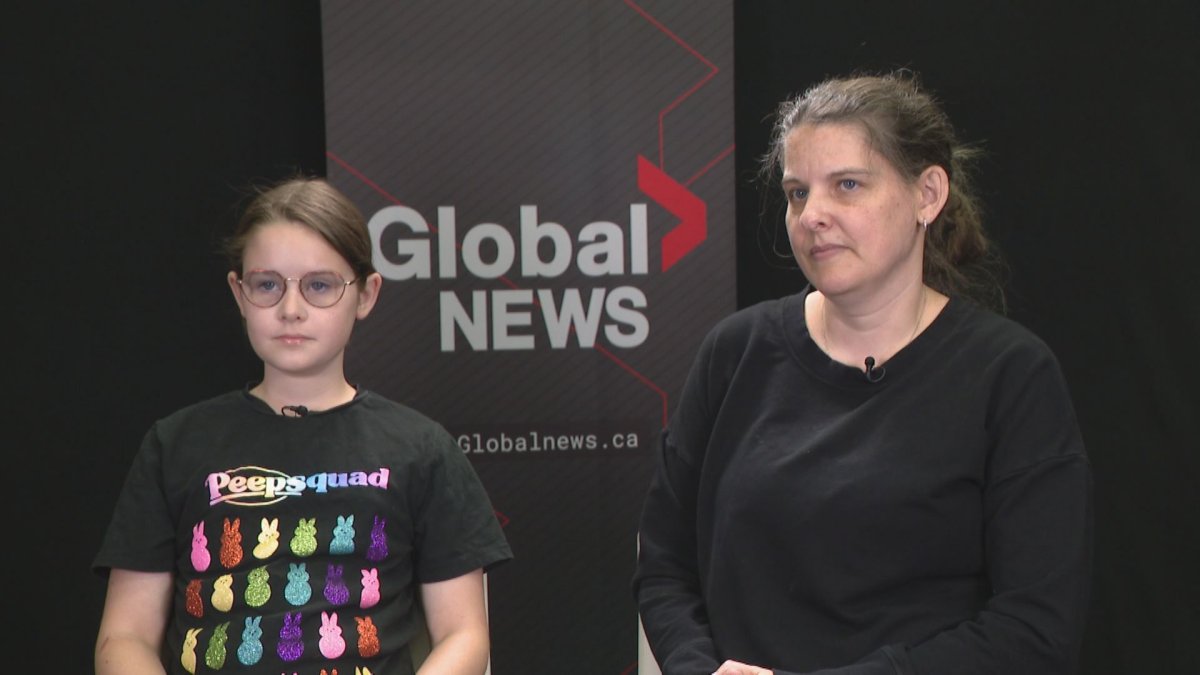A Saskatoon mother is speaking out about her experience with the paramedic service after her daughter was hit by a car last year.

Heather Leichert said last October her daughter 12-year-old daughter Alexandra was biking outside with friends when she was struck by a vehicle.
Heather says Alexandra has autism, which can make her react differently sometimes. Heather claims paramedics didn’t take any vital signs after Alexandra was struck by the vehicle.
“When the paramedics showed up they just asked me if I was okay,” Alexandra explained. “I said yes because of all the adrenaline running through my body. So they just went like, ‘okay, she’s okay, we’re good. We can leave.’”
A week later, her doctor discovered she had a concussion.
“She was really silly and that’s a common thing with people with autism is their nervous system shuts down really easily,” Heather Leichert said recalling the collision.
She took her concerns to Medavie Health Services West and was disappointed to receive a report from Medavie stating that everything was done correctly.
“I was so disappointed afterward because in the report it says nothing about her having autism,” she said. “When I finally got the paperwork, it was pretty much blank.”
“In the report, it says that I refused further treatment and that’s not what happened,” Alexandra echoed.

Kyle Sereda, general manager and chief of paramedic services said the situation was handled correctly.
“There’s 15 varieties of steps that paramedics can do based on the severity of it as they assess from the visual to the physical to the vital signs, to the treatment,” Sereda said.
“Everything was appropriate. There wasn’t any sort of discipline or concern forward brought beyond that.”
In terms of the allegations, Sereda says they take them very seriously.
“No concern is dismissed. We don’t take complaints and just ignore them. We look at everyone. and our standing practice is to review the call reports, look at our dispatch information, if that’s included, as well as talk to the paramedics that were involved.”
‘I can’t speak to the specifics of this case,” Sereda said. “They always give the patient the option of going to the hospital.”
- Poilievre calls supervised consumption sites ‘drug dens,’ vows to close some
- Poilievre calls Trudeau a ‘joke’ on world stage, won’t commit to NATO timeline
- How Project 2025 could upend Canada-U.S. relationship under Trump
- Beryl aftermath: Child dead after flash flooding in N.S., victim found in ditch
“In this case, the individual was a minor so guardians and parents were involved in some of that decision-making,” he said. “If an individual does want to go to the hospital in those cases, they always have the right to go to the hospital. We will never tell anyone that we are not taking you to the hospital.”
Heather said she wants paramedics to have more training on dealing with patients with autism, but Medavie says it isn’t needed.
“All the paramedics in their training go through understanding everything from infants to pediatrics all the way to seniors with geriatrics,” Sereda explained. “Understanding the differences in assessments and what to expect including individuals with disabilities or chronic disease.”
The family said it just wants an apology and for Medavie to admit her vitals were not taken.
“There’s part of me that’s like, ‘Just let it go,’” Heather Leichert said.
“But then if you let it go, someone else can get hurt,” Alexandra added.




Comments